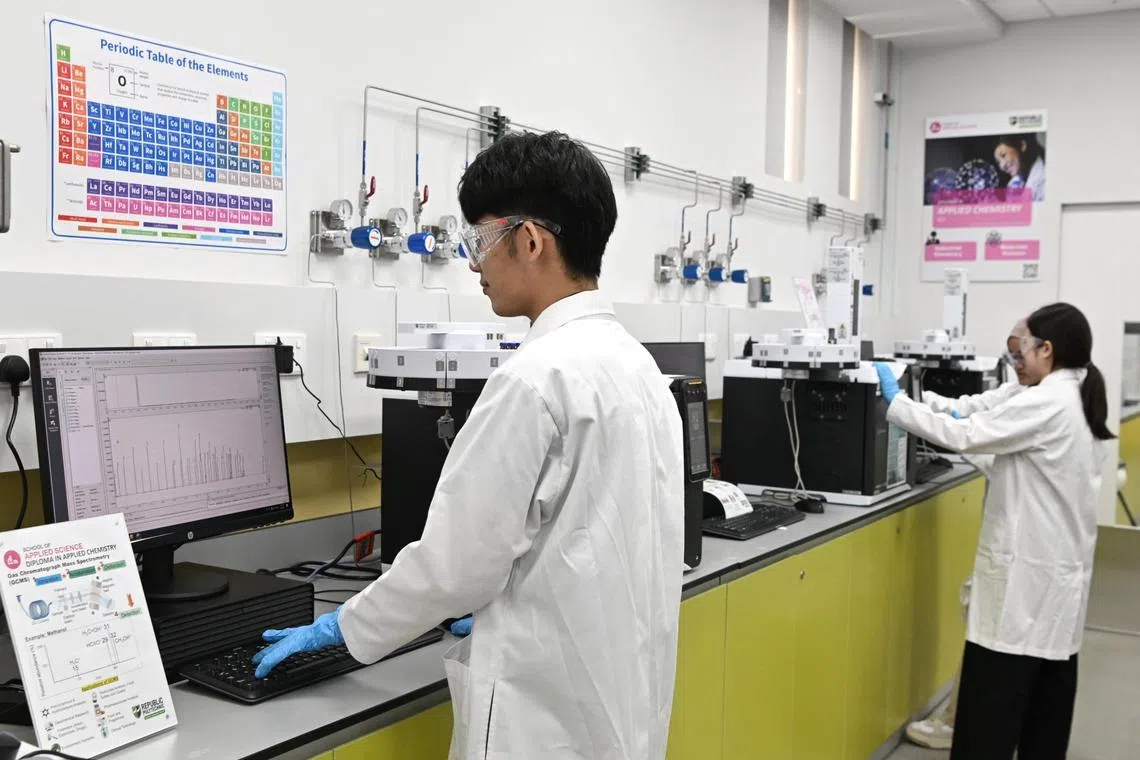Steps being taken to meet biotech manpower needs, with sector expected to grow by 8% per annum: Low Yen Ling
Sign up now: Get ST's newsletters delivered to your inbox

The shortage of biotech talent in Singapore is set to widen by 29.2 per cent over the next decade as the sector expands.
PHOTO: ST FILE
Follow topic:
SINGAPORE - Steps are being taken to address the manpower needs of Singapore’s biotech sector, which is expected to grow by 8 per cent yearly.
First, the Government is addressing the shortage by expanding the talent pipeline, said Minister of State for Trade and Industry Low Yen Ling in Parliament on Tuesday, in response to a question from the Workers’ Party’s Ms He Ting Ru (Sengkang GRC).
The Agency for Science, Technology and Research (A*Star) has a pool of 560 PhD graduates for biomedical-related sectors, including the biotech sector.
There are also 250 A*Star scholarship holders pursuing biomedical studies, she said.
The number of students admitted to biotech disciplines in autonomous universities in Singapore has grown from 1,200 in 2018 to 1,400 in 2021.
A report released in December 2022 by government deep-tech investor SGInnovate said the shortage of biotech talent in Singapore is set to widen by 29.2 per cent over the next decade as the sector expands.
The report, written by global strategy firm LEK Consulting, forecasts that the number of biotech companies here will grow by 61.5 per cent between 2022 and 2032, from 52 firms to 84.
The shortage in the number of personnel is set to grow by 30 per cent, from 154 in 2022 to 199 in 2032.
Biotech start-ups are a key engine of innovation, and talent is a key constraint here.
The talent gap is most critical at the C-suite level, where there is a need for professionals who can support business management activities such as fund-raising and business direction, the report added.
To address this, Singapore is also nurturing people who not only understand the science, but also have the capabilities to commercialise, to raise funds and to expand the business, Ms Low said.
One way this is done is through SGInnovate’s Helix Immersion Programme, a one-year on-job training programme that lets biomedical research and academic professionals gain industry experience in different roles, both in and outside the laboratory.
By 2025, this programme will place and train around 100 fellows in biotech start-ups and companies.
Singapore has tripled the number of companies in biotech-related areas from a decade ago. About 140 companies are involved in therapeutics diagnostic drug delivery, drug delivery tools or supporting the vibrant growth of this sector, Ms Low said.
Meanwhile, the Innovation and Enterprise Fellowship Programme (IFP) has attracted more than 90 fellows since its launch in 2020.
The IFP aims to grow the pool of talent who can support the commercialisation of deep-tech research and bring nascent technologies to market. Fifty deep-tech start-ups, accelerators and incubators participated in its pilot run.
Singapore is also supporting the industry in its need for scientific talent through A*Star’s Technology for Enterprise Capability Upgrading (T-UP) programme, which has seconded close to 70 researchers and scientists to 45 biotech-related companies, Ms Low added.


